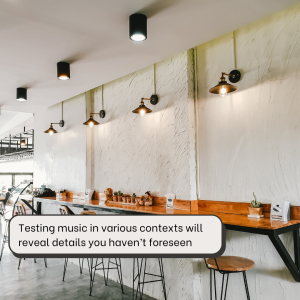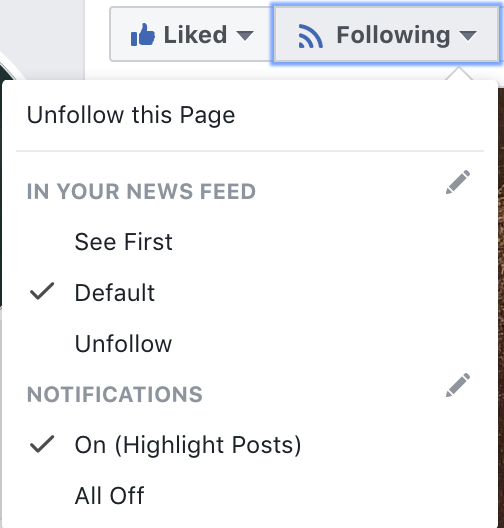How To Leave Spotify
(Trigger Warning: I’m a bit more raw in this post than usual)
Updated July 4th
It’s the first time I’ve written a blog post, knowing beforehand that it’s been waiting for. I’ve been writing about music production since 2015, covering both technical and philosophical topics, as well as music business questions. But recently, I felt that the whole Spotify situation was the last straw that I could cope with. For years, fellow musicians and people have been complaining about how Spotify was allegedly abusing artists, which I was on the fence about (I’ll explain my view on this below). The AI-generated artists arrived, but it crossed a line when Daniel Ek became the chairman of Helsing after investing 600+ million euros in a military company. Interestingly, while researching this, I discovered that he had started investing in 2021. An investment would be bad, but becoming a chairman is terrible news.
That was when it went too far for me. I was already aware that I was a passive asset, which, in a way, I was okay with. However, if my passive income were being used to develop weapons, that would be too much.
Before I explain how I’m moving out of Spotify and everything involved as an artist and label owner, let me put into words a point of view that I haven’t heard many others express, which is why it took me a while to react.
The Low Wage For Artists Narrative
This is one thing that didn’t bother me, and I’ll explain myself. Of course, in an ideal world, I’d love to get a better share of the cake. Still, the way Spotify distributes its profits is very complex, and I won’t get into that. It’s not because you feel entitled to be paid more that it’s possible. However, since my job involves working with musicians, I see daily that artists often don’t understand how the music industry works. If they put an EP together, upload it to Spotify, and get a few hundred listens, then they feel entitled to be compensated appropriately. Wishful thinking is indeed something I often see in the business.
Let me be clear, Spotify is a service made by tech bros for major artists. The rest, in their view, is just a commodity. That’s reality, and they utilize AI to create more streams internally on a limited budget, which is what a tech bro would do alone. This is one tactic among those used to finance themselves and create content licensed by Spotify. Whatever tactic is possible to generate a few more bucks will be considered.
People have been complaining for years that Spotify isn’t paying enough and that didn’t do any changes at all. Therefore, complaining is not working. Neither Spotify or the users will change their habits.
If you have watched the Netflix series about Spotify, you’ll learn that Ek has no principles or moral compass. He is driven by money and power, and loves to disrupt the established system to impose his ways. When he launched Spotify, he sold the idea to the press and major labels that he wanted to disrupt the piracy scene by offering an organized alternative to what pirates were doing. He saw a way to commercialize a pirate idea. Despite having permission to stream music, he did it anyway by giving access to it to people, allowing them to listen to all the music they wanted, for free. He is not afraid to break or bend the laws and ethics (especially ethics).
What he sold to artists was the opportunity to reach millions of people. At some point, he predicted that Spotify would generate profits to support artists, but this is old news; we never saw that happen, and it likely never will. When he publicly said that making music costs nothing, that was the first big red flag for me, because he then indirectly confirmed that he knows nothing about music making and has zero consideration for the work we do. Despite all other scandals, that one was the biggest for me.
If you build a service that represents people or artists, one of your first mandates is to know how they operate. I understand that he is a tech bro dick, but that’s not an excuse.
The reason why the low wage has never really bothered me was that :
- If I’m part of a system, I’m free to leave or stay. If I’m unhappy with something that doesn’t align with who I am, then I should start by making a change, not just complaining about it. I don’t understand how people can remain on Spotify and still complain about it. No one is forcing you to stay. If you are unhappy, leave.
- Until I decided to leave, I saw Spotify as a visibility platform where most users dwell, so being there is a good way to be seen. Coming from the Netlabel scene, where I saw the piracy starting around 1998, I decided to give away my music through them. If you can’t fight it, go along with it. While everyone was telling me I was crazy to do this, it ended up being a good thing for me: I made tons of reliable friends and contacts, toured, and gained a lot of my early reputation due to the exposure it gave me.
- Anyone who wants to live off music and profitability will know that Spotify is not the way to make a salary. Spotify got me work and bookings because it is a Google for music. Spotify has the same potential as a lottery, but it’ll drive you mad and distort your true self, as you’ll make music to crack the algorithm, not to express your art.
This is why, with this in mind, I was ok with Spotify and also why many artists feel fine by remaining there. This is also why many artists hesitate to leave, as the average user has developed a dependency on streaming, feeling comfortable with the app due to its well-built interface, powerful recommendation algorithms, and extensive selection, which surpasses that of most competitors.
The AI music and fake artists Problem
This one is a bit more complicated because AI music is relatively new in the music industry, so opinions on it have been fluctuating. While people like Timbaland, who invested in Suno and have been advocating for AI music to be recognized, saw it also backfire lately, as it turned out he was blatantly using other people’s music. I have mixed feelings about this. If we remove AI from the equation, music has been built on people who constantly imitate and draw inspiration from others, sometimes on the edge of plagiarism. It is common in electronic music to have very similar tracks, and the bootleg scene is a thing. Hip Hop has been sampling jazz records and sometimes, popular pop songs without much transformation, so how is that different than AI scrubbing ideas?
The difference is that AI can scrub millions of songs while a hip-hop artist can sample one record at a time.
The problem is that AI must be trained on music (not inventing it), and where it gets tricky is that Suno is training their model on music without permission, as there is a loophole in the system. Yes, you’re seeing what I’ll be sharing now. Spotify has a gold mine for training because they have no problem bending rules to use music in that way. It’s not my style to be dystopian, but it doesn’t look good that they’re creating fake artists based on music from their library. From Ek’s perspective, artists aren’t enough to meet his financial needs; he needs to make more docile creators who can produce music, good or not, to fulfill the customer’s needs.
Since the average listener wants music that is similar to what they like, AI is a perfect solution to make generic, easy-to-swallow material for someone who doesn’t like much novelty.
The adverse side effect this has on artists is potentially huge: humans come up with new ideas, and AI capitalizes on them.
The good side of this: AI can’t tour or perform. It also lacks emotional language to convey it through art.
Spotify for Military Uses
This is where a line was crossed in my case. Hypothetically speaking, the revenues generated by my music will be used for weapon development that could potentially harm my fans (or future generations). That is not how I want my music to exist. What I understand is that Helsing is a start-up with roots in defence measures. However, generals and warlords often claim that the best defence is good offense. What starts as a system can eventually morph into something else, and with Ek’s power and money-hunger, as chairman, I can only see him pushing to go where the money is. With NATO raising the bar to 5% of their spending per country member, while many complain they’re struggling to meet 3%, it makes sense that a startup can come to them with a solution that fulfills that need.
Good timing, no?
Now it is clear that he will want to disrupt the military industry. Still, I have no understanding of that industry, so I can only imagine some foul tactics based on unlimited budget methods, where perhaps the number of casualties will be his new stream number. What I do know is that when new war technologies are created, countries often invent reasons to go to war to test them, as the war industry thrives when it flexes its power. In recent years, we have witnessed uprisings and the invasion of countries. One can become a target, sometimes for obscure reasons.
I don’t want my music to be at the center of any potential civilian death. My music might be outliving me and I don’t want my legacy to involve military funding.
If you look at where Spotify started and what it has become, any military venture from Ek can only be heading into nightmarish scenarios. He lacks any sense of human values and constantly throws a smoke screen to cover up his other actions. He lured people into using Spotify for free and then eventually charged them. He bent the hand of labels to gain their support. He is taking a chunk of the podcast world and also has audiobooks. He recently put pressure on the Canadian Radio-television and Telecommunications Commission so that Spotify can escape the national legislation. There’s no limit to how much he will go to achieve all profits, but not at the expense of artists.
Update on Ek’s investment
The investment came from Prima Materia, Ek’s personal investment firm, not directly from Spotify’s corporate assets.
1. What is Prima Materia?
Prima Materia is Ek’s personal venture capital vehicle, co‑founded with Spotify investor Shakil Khan around 2021, with a pledge of roughly €1 billion to back “deep tech” companies across Europe . Source.
2. The Helsing Investment
In June 2025, Prima Materia led a €600 million Series D round for Helsing, boosting its value to around €12 billion (Source). This round followed an earlier €100 million Series A investment by Ek through the same firm in 2021
3. Was any Spotify cash used?
No. The funding was strictly through Prima Materia—Ek’s private capital—not Spotify’s funds.
4. Where did Prima Materia’s money come from?
It comes from Ek’s personal wealth, which includes returns and stock sales he has made from Spotify over time. Reports note that Ek has sold over $800 million in Spotify shares since mid‑2023 to fund his investments. These are personal proceeds not Spotify capital.
The reality is:
While Spotify’s corporate funds were not used, Daniel Ek’s personal wealth — which primarily comes from Spotify stock — did fund his VC firm Prima Materia. So in indirect terms, yes: the profits he gained from Spotify (via stock sales, dividends, or compensation) were used to finance a weapons/defense company. But technically, it’s his private money, not Spotify’s balance sheet.
Why it matters:
-
Ek has sold hundreds of millions of dollars in Spotify shares in the past few years — including as recently as mid-2023. That’s where a big chunk of Prima Materia’s capital originates.
-
By routing the investment through Prima Materia, it allows him to claim it’s independent of Spotify, even though his wealth exists largely because of Spotify.
-
For critics (like Deerhoof and other artists), this looks like ethical sleight of hand — using the goodwill (and artist-generated revenue) of Spotify to enrich himself and then investing that wealth in military tech.
I will update this as I know more of the situation.
Leaving Spotify as a user
I apologize for the lengthy introduction; if you needed additional reasons to quit, I thought I’d provide some elements to consider. Perhaps you can pass it to a reluctant friend. I know it looks like the banana bread recipe page, which has five pages of stories before it gets to the recipe itself. But I don’t have any popups or ads, though.
This is where many struggle because it’s like getting rid of your favourite slippers, which you would know are toxic, but hey, they’re so comfortable.
As a user, leaving ended up being pretty straightforward. At first, I was overwhelmed about going because of my numerous, precious playlists that I had been crafting over the past 10 years. It felt like a task I couldn’t handle.
I tried multiple sites and apps until I found one that works properly. But first, I had to decide where I would transfer my playlist and choose where to go next. I had tried a few streaming apps before: Apple Music, Deezer, and YouTube Music. The reason I didn’t stay with them was that the selection of music didn’t meet my needs, and the UX was ugly, or the overall app design felt clunky or buggy. I have a low tolerance for apps that crash or act weird. If I’m paying 10-20$ a month for an app, I expect it to be reliable and working properly.
But let’s go through my exploration, in order of appearance.
Apple Music
This was my first choice, as I’m a Mac user, and it integrates seamlessly into their ecosystem. I don’t enjoy the app design. iTunes has always been a nightmare to navigate since its inception over 20 years ago. I don’t understand how a design-oriented company can be so awful at developing an app like their Music one. However, it excels particularly in sound, incorporating the Dolby Atmos experience and enhancing spatially related audio. If you have AirPods Pro, like I do, you’ll have an enjoyable listening experience. The only downside of Atmos mixed music is that it can become gimmicky and a bit over-the-top when you want to listen to music, especially during training. I know it can be turned off but I didn’t jump in the Atmos boat yet because it hasn’t convinced me.
That said, when I transferred my playlists, the process went well, except for a failure to find between 10% and 20% of some songs I had in Spotify.
Youtube Music
I’ve been a Premium user for a long while now and love it. You can find rare music on there, plus all the video content. I also have a channel where I occasionally publish content. I am aware that Google has been going back and forth with some military purposes but haven’t found anything where they’re crossing some of my ethics. They also have low wages for artists, like Apple Music and I don’t think there is a collusion between services. I think it’s just more complicated than what we can think of.
As for the app and music selection of YouTube Music, I find it quite underwhelming. When I transferred my playlists to that platform, 80% of the music wasn’t recognized but was found on Youtube itself. I’m still unsure what’s happening, as it seems that YouTube and YouTube Music are somehow independent, which means that some content from the leading platform lacks the necessary rights to be streamed on YouTube Music. It’s confusing and a mess, so that wasn’t an option for me. I would need to do my playlists by hand in the leading platform as the music one is just terrible.
Qobuz
There’s been some excitement about this platform that I didn’t know of so I gave it a try. From what I read, it’s French-based and seems to be coming from a solid background. France has recently announced specific ways of dealing with mechanical rights for artists not from their country, which essentially involves retaining a portion of the money. However, I’ll need to read more about this. That aspect made me feel cautious about what would happen if I supported a platform in these conditions. At first glance, the app appears to be okay. I’m not blown away by anything. Sound quality is standard. It might please some people and could be a good alternative for Europeans. I didn’t try to transfer my music, so I’m not sure about the availability of what I have.
Deezer
I had been testing Deezer for a few months before and enjoyed it. The user interface is not impressive but it works. I didn’t feel tempted to go back.
Soundcloud
That platform gained momentum in full force around 2006, and I was an early ambassador from the outset. But it fizzled out around 2017 or so where it just started falling apart. When you used to reach your followers, it seemed impossible unless you paid for exposure. That sort of tactic is just plain wrong. The artists are supposed to be the motor of the platform and that approach is just sucking money from people for doubtful results. Also, if you have any issues and wish to talk to support, well, forget about it because they’re never answering messages whatsoever.
Most musicians I know call Soundcloud a dumpster fire on wheels.
Soundcloud is a zombie site. It’s a place where I host some of my music and use it to share demos or contact some artists, but their internal messaging system is broken. Whenever I want to have a conversation with an artist, we automatically exchange contact information to talk with each other.
It’s purely functional, and I don’t see the point in investing energy in keeping it active, as I have 17,000 followers. However, when I post a song, I rarely get more than 20 plays.
There is no way for me to consider using it as an alternative to Spotify, and I would strongly advise against doing so.
Bandcamp
I love Bandcamp. I think it’s the best platform in how it’s made but the streaming app sucks. It’s a mess to organize playlists and navigate through them. For a while, there weren’t even playlists, and now I still don’t know how to make them work. If it had the UX and functionalities of Spotify, it would dominate the market. By far. However, it was sold a few times in recent years, and I’m unsure if it will collapse, as it has fired a lot of staff. I use it, but only on my computer, and it’s a compelling option for indie artists.
Tidal
I had refrained from exploring Tidal because of the guy behind it: Jay-Z. With the Diddy trial on going and all the sleeziness behind those guys, I’m just not feeling comfortable about what they’re doing, but after trying it, I believe this is where I will be streaming music from for now. The quality is far superior to that of all others, and the playlist transfer proved to be exceptional as well, thanks to the hi-fi option that gives you quality equal to the master uploaded. The unidentified content was about 10% which is ok so far.
Summary
-
Best Sound Quality: Qobuz, Tidal HiFi Plus, and Apple Music (all support true hi-res).
-
Best for DJs / Uploads: SoundCloud, Tidal (DJ integration).
-
Best for Ecosystem Integration: Apple Music (iOS/Mac), Amazon (Alexa).
-
Best for Audiophiles: Qobuz (no MQA, pure FLAC), Tidal HiFi Plus.
-
Best Budget Choice: YouTube Music Free.
-
Most Artist-Friendly Pay Model: Tidal HiFi Plus, SoundCloud (fan-powered royalties).
I have been waiting for a new player, Subvert, coming soon. It seems like this platform will be very powerful as it is built like a coop and will be made with the right features as it’s designed by musicians and music lovers.
Transferring the playlists and music
This was my main worry, but it turned out to be super easy. When I published to Instagram that I was in the middle of transitioning out of Spotify, so many people reached out to share their experiences and tips, which ended up being very informative. I think there’s a bit of unknown for artists on the implications this can cause, so everyone is meticulous. For instance, someone told me that if your distribution is through Tunecore (Which doesn’t have a good reputation to start with), your music is outsourced from Spotify to be on TikTok. I wasn’t able to find enough evidence, but in my case, that wasn’t the case with my distributor (Labelworx, which I like a lot).
I tried ALL of the services because I had at least one issue with each of them, but the last one I used ended up working. Considering the number of playlists I have, it made sense to pay for a premium service, which would ease the mass transfer all at once.
FreeYourMusic: Some people had good results with that one, but I experienced crashes or an endless loop of trying to connect to Apple Music services. It just went nowhere.
TuneMyMusic: Same as above. It was filled with bugs, discontinuities, or crashes. I gave up very quickly.
SongShift: I discovered this one on my smartphone and gave it a try. Initially, it worked well, but I could only transfer a few playlists at a time, with a limited number of songs per playlist. It was slow, and I agreed to pay to increase the speed a bit. It came to 9$ a month, but I’m not sure why I would need a subscription since my transfer is a one-way ticket. I was able to transfer most of my music to Apple Music, but it took forever. I had to keep the app open for the transfer to happen (it seems), and with playlists of 7,000 tracks, it was extremely slow. After exploring Apple Music, I decided to go with Tidal, so I started the whole process again. After three transfers, I noticed none appeared in Tidal when I opened it. If it was problem-free with Apple, it wasn’t working with Tidal. I cancelled everything and searched for another service.
Switcheroo: This one was low profile with good reviews so I gave it a try. It kept crashing so I deleted it right away.
Soundiiz: This was the winning solution. It came to 5$. It transferred everything quickly, without a fuss, and showed the titles that didn’t work. It also sent me an email when the process was complete. Very impressive. I almost wished I had more playlists to transfer, because it was nearly enjoyable to do so. One thing I appreciated was the integration of multiple platforms, which allows you to organize your music world fully. I was able to synchronize Bandcamp, Soundcloud, YouTube, Discogs, and Beatport, which felt exciting.
Cancelling Spotify As A user
That was funny. Not only is it not easy to find, but I also had to Google it to see how it works. Then it showed me 4 pages of “ARE YOU SURE?” followed by a final sad playlist to listen to. It reminded me of that time I tried deleting Facebook. It was a lovely deployment of emotional manipulation to keep me on board with messages like “You won’t be able to talk to this friend.”

That was the end of it. It actually felt excellent and I didn’t take any time to listen to their shitty playlist.
Leaving as an Artist
This is where it becomes a bit more complicated, as you need to go through your distributor to submit a take-down request targeting a specific platform. Some distributors don’t like this and I had approached mine last year and they convinced me to stay, explaining me that I’d be missing some income.
I pulled out a report for last year, and the streams I had were around 80,000, with 55,000 coming directly from Spotify. It’s a lot and it shows you why some artists are cautious to leave. In an article I read, it explained that for some fans, this can be seen as a punishment, which I can partly understand. When Skee Mask left it a little while ago, I felt gutted, and it took me a little time to head to Bandcamp to follow him again.
With those numbers, I checked to see how much Spotify paid me last year, and the amount for 55,000 came to $130 if I own 100% of the royalties. From what I understand, my distributor retains a percentage, and I share the remaining part with the artists. At this point, it becomes increasingly less tangible that my music will be streamed more or earn more money through Spotify, and a decline of $130 doesn’t sound like a significant deal. What is the real cost here is not being part of the potential visibility. One of my primary sources of income, in terms of revenue, is directly from Bandcamp. I can do in a few months what all other platforms combined do. The option here would be to make it affordable for anyone who is a fan to follow me, subscribe to access all my music, and offer the option to stream (with the ability to control how many times someone can listen to a song, set to 3 by default).
But this comes down to an existential question: as an artist, do I need to be accessible to the entire world when my music is mainly made for a niche market? This is a debatable topic, and the answers are not straightforward. I’m unsure how to address it, as I’m an inherently inclusive person. However, when I looked at my Spotify stats, the streams were constantly fluctuating between 400 and 1,200 per month. It’s very little. When looking at the stats, I also saw that I had 10 “real fans” who listen to me daily. In my mind, when you’re a fan of an artist, if you can’t find him on a platform, you see him elsewhere. This is what happened to many people following Skee Mask.
But what this comes down to, it seems, is that you can’t please everyone, and when you try to, it doesn’t go well. That’s something I learned from making music and now I have to apply that same approach to self-promotion. I think I will focus on creating more music and explore alternative promotional methods instead.
We shall see.


 The first step to promotion is to understand who your music is for. In electronic music, it is often, in the end, for DJs. Technically, those are your clients and the bridge between yourself and the public. If DJs aren’t your bridge, you need to sit and find out who your promotion proxy is. Perhaps it’s radios or blogs.
The first step to promotion is to understand who your music is for. In electronic music, it is often, in the end, for DJs. Technically, those are your clients and the bridge between yourself and the public. If DJs aren’t your bridge, you need to sit and find out who your promotion proxy is. Perhaps it’s radios or blogs.


 Ok, so how can we apply that in practice? How do we get started from scratch?
Ok, so how can we apply that in practice? How do we get started from scratch?